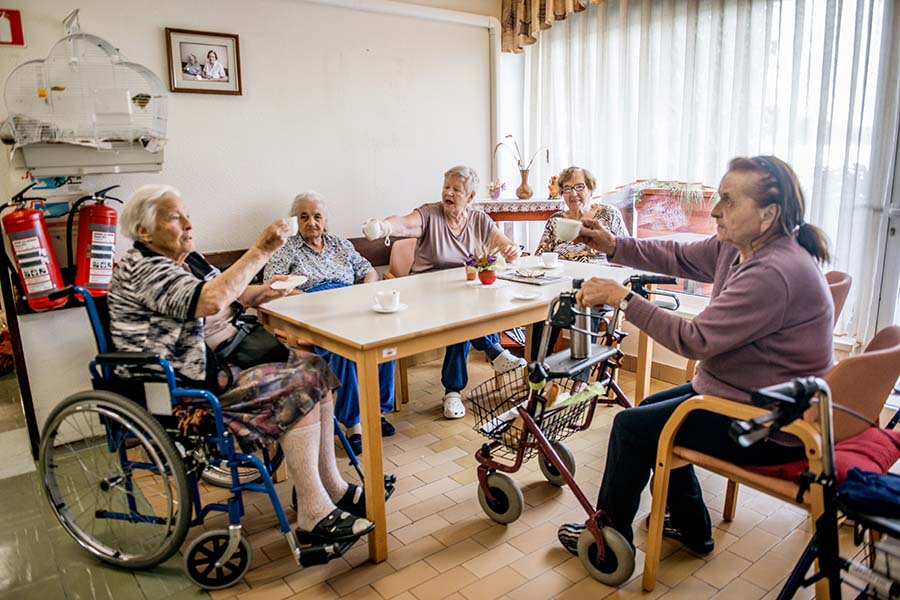
Health Services Management Centre, University of Birmingham
Most of us want to live interdependently – in lives full of friendship, love, purpose and meaning. We also want some independence – to make choices about our lives, and to be able to undertake the basic activities of daily living (dressing, washing, eating) how and when we want. If there are physical and or cognitive impairments that make it difficult to do those things independently, then we want support that can assist us with those basic tasks – but in ways that also help sustain the friendship, love, purpose and meaning in our lives, not remove us from it.
Adult social care services are struggling to cope with rising demand for their services, and with the expectation that they have a role in helping people realise their assets (their skills and abilities) rather than just meet their basic needs. They are stuck in a post-war paradigm, shaped by the National Assistance Act 1948, which created a safety net for people who through circumstances such as old age or disability could not pay into national insurance.
The current care system faces multiple challenges as the demand on services grows and the available funding shrinks. We need to understand better what works and doesn’t work in the current system so that money can be spent most effectively and outcomes improved. The recent announcement that the University of Birmingham will be joining the NIHR School for Social Care Research, allows us to build on and further develop research that does just that.
At the University of Birmingham, we support and research the possibilities for reducing, delaying and preventing the need for social care and exploring alternative types of care. We have a strong track record in research that supports: wellbeing and prevention; funding care appropriately; designing effective care markets; and improving integration with health services.
Recent projects include:
- A Department of Health Policy Research Programme (DH PRP)-funded project on Prevention, led by Professor Jerry Tew which evaluates and promotes tools which build social resources for people in the community, such as Local Area Coordination and Asset-Based Community Development.
- Research led by Professor Jon Glasby, part of a £2.5 million Economic and Social Research Council (ESRC) large grant on Sustainable Care (held by the University of Sheffield), focuses on assessing the costs and contributions of care and how sustainable these services are.
- Dr Denise Tanner is part of a Wellcome-funded project focusing on older people’s attitudes to self-funded care.
- Professor Catherine Needham and Patrick Hall are running a project comparing care systems in the four nations of the UK, recognising that there is a lack of systematic comparison of approaches and outcomes.
- Dr Karen Newbigging’s research has made a strong contribution to strategic commissioning to make care services more effective. She is currently leading NIHR-funded research on the contribution of the voluntary sector to mental health crisis care in England.
- Dr Robin Miller is academic lead on a national evaluation of the Building the Right Support programme, which seeks to reshape services for people with a learning disability to ensure that care is person-centred and provided close to home.
The breadth of knowledge and local connections that these projects have generated is a great springboard for future research done at the University of Birmingham as part of its new membership of the NIHR’s School for Social Care.
